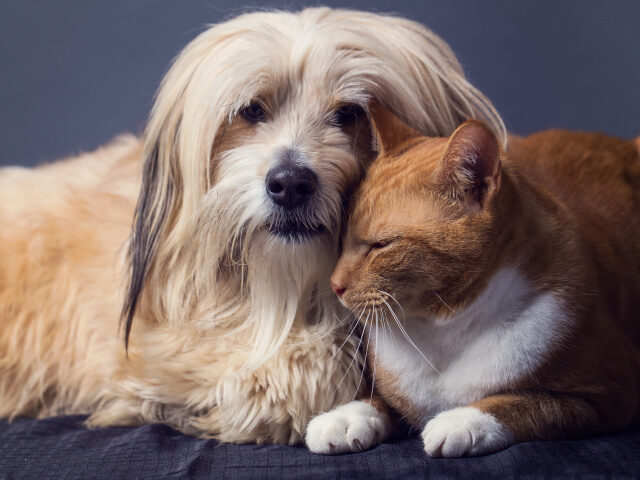Reps. Nancy Mace (R-SC) and Jared Moskowitz (D-FL) introduced a bill that would cut taxpayer funding of cruel experiments conducted on cats and dogs, as many of these experiments have been highlighted by the government watchdog White Coat Waste Project (WCW).
The lawmakers introduced the Preventing Animal Abuse and Waste Act (PAAW Act), as Mace detailed how disturbing it has been to “learn the scale and scope of barbaric and unnecessary dog and cat experiments funded by the National Institutes of Health.”
“Americans across the political spectrum have been horrified to learn their tax dollars are being used to subsidize cruelty to thousands of puppies and kittens in labs every year,” Mace continued in her statement, assuring that the PAAW Act would “ensure taxpayers’ hard-earned money is not wasted on outdated and cruel experiments on pets.”
Identifying himself as a dog owner, Moscowitz said he is “appalled by the inhumane practices that have been conducted using taxpayer dollars” and “happy to have worked across the aisle with Rep. Mace to choose paws over politics and put a stop to unnecessary government experiments on cats and dogs.”
More specifically, the bill would “amend the Public Health Service Act to prohibit the Director of the National Institutes of Health from conducting or funding research that causes significant pain or distress to a dog or cat, and for other purposes.”
The bill states that the National Institutes of Health (NIH) spends taxpayer dollars on experiments inflicting pain on both cats and dogs, yet the federal agency itself admits that ‘‘animal models often fail to provide good ways to mimic disease or predict how drugs will work in humans, resulting in much wasted time and money while patients wait for therapies,” per the text of the bill.
The bill also notes that other agencies, including the Department of Veterans Affairs, the Environmental Protection Agency, and Food and Drug Administration have “launched initiatives to reduce and replace testing on dogs and cats, specifically.”
As a result, the bill states that “the Director of NIH may not conduct or support any research that causes significant pain or distress to a dog or cat.” Per the bill, this “includes any study classified in pain category D or E by the Department of Agriculture.”
It is supported by the White Coast Waste Project, which has blown the lid off several cruel and unusual taxpayer-funded experiments on animals. In 2022, for example, the NIH faced a congressional probe after reports emerged alleging the National Institute on Drug Abuse (NIDA) spent millions of taxpayer dollars on a cruel experiment, injecting beagle puppies with cocaine, per WCW’s findings via a Freedom of Information Act [FOIA] request. They found that “seven 6-month-old beagle puppies were trained to wear a jacket” which “served a cruel purpose: to inject the animal wearing it with drugs.”
WCW has shared some footage of these various experiments, many of which are difficult to watch.
“From Fauci’s fly infestation tests on beagles to the Kremlin’s kitten crippling experiments, our investigations continue to expose how the NIH wastes millions of tax dollars in the US and abroad to abuse pets in painful, dead-end experiments,” Justin Goodman, senior vice president of WCW said in a statement.
“A supermajority of taxpayers oppose the NIH’s wasteful spending on cat and dog experiments, and they shouldn’t be forced to pay. We applaud Reps. Mace, Moskowitz, and their colleagues for introducing the bipartisan PAAW Act and their outstanding leadership to cut the NIH’s taxpayer-funded cruelty to canines and kittens,” he continued.
“When it comes to painful and unnecessary dog and cat testing, wasteful NIH spending is the problem, and the PAAW Act is the solution. Stop the money. Stop the madness!” he added.
According to WCW, “In addition to co-leads Mace and Moskowitz, the PAAW Act is also being introduced by Rep. Nicole Malliotakis (R-NY), Troy Nehls (R-TX), Marcy Kaptur (D-OH), Eleanor Holmes Norton (D-DC), Buddy Carter (R-GA), Greg Steube (R-FL), and Dina Titus (D-NV).”

COMMENTS
Please let us know if you're having issues with commenting.